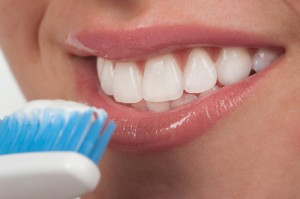Tips to Protect Tooth Enamel

Instructing patients in proper at-home self-care, such as flossing, brushing, and the use of a fluoride mouth rinse, often improves the subsequent checkups. Unless there are visible signs of enamel loss, however, many patients are never instructed on ways to maintain and protect their tooth enamel. Some of the greatest dangers to enamel strength and health are foods and beverages. These substances stay in contact with enamel for extended periods of time and penetrate enamel to leave stains. Acidic foods and beverages weaken enamel, allowing cavities to develop.
A diet with excessive sugar consumption generally increases these occurrences, causing bacteria to grow faster and cavities to develop sooner. While the best way to avoid these risks is avoidance of their causes, family dentists know avoidance is not likely to work, so the next best approach is to minimize damage by rinsing the mouth or brushing after consuming foods and beverages typically high in acid and/or sugar. Flossing will improve results, and attending professional exams and cleanings on schedule will also help.
Although patients often prefer bright white teeth, it is more beneficial to have teeth professionally whitened than to use over-the-counter whitening gels and kits. These kits and gels, though at times effective, can leave teeth more sensitive and affect enamel with continued or frequent use. Discussing dental and oral health concerns at regular checkups can also help by keeping patients well-informed and clinics aware of patient concerns for future monitoring.
To learn more about maintaining tooth enamel, and other aspects of oral health, contact our skilled dental team today!
